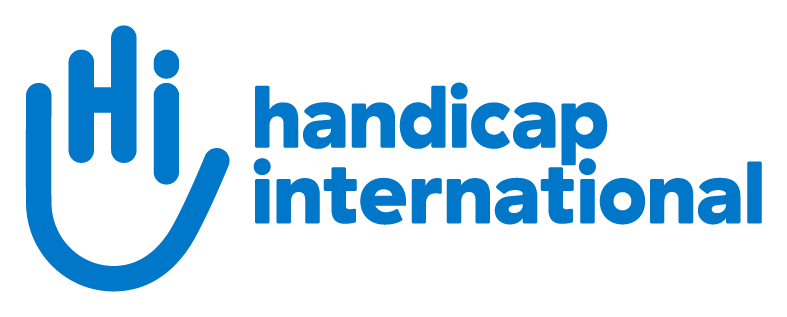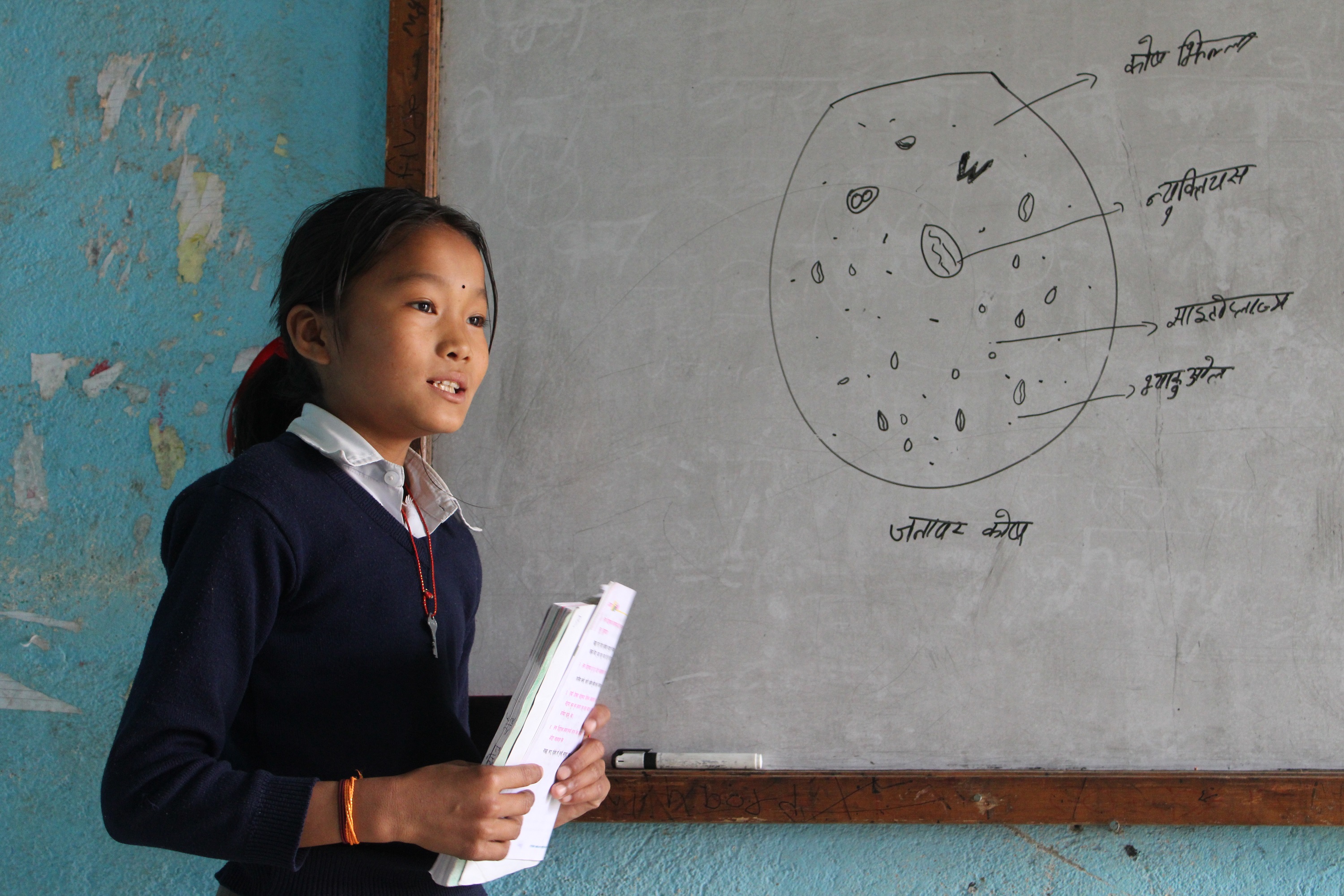
Sundari spends most of her time with her best friend, Bipana. Together, they play Ludo, a strategy board game that is Sundari’s favorite. “Sundari is very open and friendly,” Bipana says. “She sometimes gets angry, but I can calm her down really quickly.” The resource class in Sundari’s school caters to 30 students with disabilities. Children learn the Nepali and English alphabets, numbers, words, body parts, as well as hygiene and self-care. When they’re ready, students join their classmates for inclusive lessons. “Sundari was enrolled in the resource class – a class where children with intellectual disabilities study together—when she was 5 years old,” explains her teacher, Bhupendra Bhandari. “She was enrolled during her early childhood development years and has since progressed to mainstream classes. She is now second in her class.” Children in resource classes range in age from 7 to 17, with some even in their 20s. Like Sundari, some transition to mainstream classes after a few years in a resource class. Over the past four years, the school’s resource class has been supported by Handicap International and its local partner Human Rights, Social Awareness and Development Center. Resource classes welcome children with a range of disabilities, including sensory and intellectual disabilities. Only 380 of Nepal’s more than 30,000 schools have resource classes, and Handicap International supports 50 of them. Teams provide educational materials adapted to the needs of children with disabilities, including braille books or sign language learning mobile applications. Other support materials include foam letters, word cards, toy balls, storybooks in local languages and stationery. Educators are also trained to adapt their teaching methods to the needs of children with disabilities. Last school year, HI also provided hygiene kits and school bags to 500 students with disabilities in 46 resource classes across 10 districts to help them continue to learn during the Covid-19 pandemic. HI and its local partners continue to fight for access to education for children with disabilities. Prabin, 5, lives in Jhapa, the southeastern district of Nepal with his parents. He was born without the lower part of his right leg. “Because of the disability of our child we were worried about his future,” says Sunita, Prabin’s mother. A community mobilizer from Community Based Rehabilitation-Biratnagar (CBRB), a local partner organization of Handicap International, met Prabin and referred the family to seek services at the rehabilitation center. At first, Prabin was hesitant to be fitted with an artificial limb. Specialists worked with the boy and his parents to better understand how the device would work, and how it would help him. A month later, the parents were eager to have a new leg. “This was a wonderful change for our little boy, as he quickly accepted the prosthesis and began playing, running, and even jumping like any other child of his age,” Sunita explains. Prabin attends school and loves to play with his toys. Ambika Sharma, a specialist in artificial limbs and orthopedic braces at CBRB, worked with the little boy and his family from the beginning. “Initially, it was challenging to fit Prabin with an artificial limb because he was not accepting,” Sharma says. “But his parents made it possible with their supervision and guidance. It was an amazing experience for us to see him happy with his prosthesis." As Prabin gets older, he will need to be fitted with new devices. “Growth is an important aspect of a child's life,” Sharma continues. “As their bodies change, prostheses have to be adapted or changed in the appropriate manner to accommodate them. Just as they outgrow shirts, pants, and shoes, they will outgrow their prostheses.” Jamuna, 26, from Rasuwa, a central hilly district of Nepal, who is deaf by birth and uses sign language to communicate, started a business venture with her strong will power and with the support of Handicap International. Jamuna left her studies a few years back and could not continue her studies after ninth grade due to a barrier in accessing class in sign language. This is something she regrets till date. Her father had a small piece of land, which was not very productive and barely met the needs of their family. There was not enough left for them to save anything for the future. Jamuna knew about her family’s economic condition and felt a strong sense of responsibility towards that. All her efforts to help her family were in vain as her disability restricted her communication and she could not look for a job opportunity in her community. Her knowledge of sign language empowered her to communicate with others who could understand her or to write notes with others. Thanks to the support from the project, she could build a new cottage and restore her tailoring business, which was badly damaged by the 2015 earthquake. In her community, she is well known for sewing stylish designs for girls and women. "My newly built tailor home gave me plenty of space to work on and enough light made my work so much easier," says Jamuna. She feels more dignified and honored in her family as well as in her community. A few years ago, when she was 20, she learned tailoring and dreamed of becoming a renowned tailor. “My dream turned into reality,” said Jamuna. HI has been present in Nepal since 2000 and works to improve the quality of life and participation of the most vulnerable populations, including people with disabilities. Thanks to the support of HI donors like the United States Agency for International Development (USAID), these efforts are possible.











